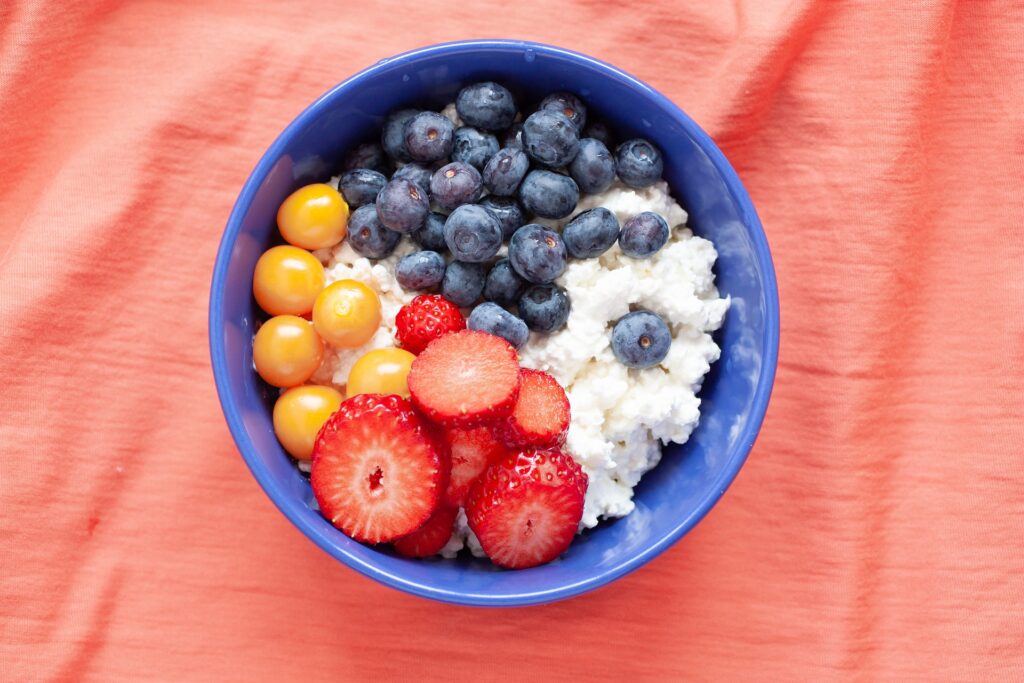Bones are living tissue that responds to the environment. They are made of collagen, calcium, they contain marrow, crucial in red blood cell production. Throughout life, bones are continually undergoing a process called remodeling. It means that the bones tear down and rebuild themselves. The areas where two bones meet are called joints. Their primary function is to allow the bones to move.
Keeping the bones and joints functioning well should be of primary importance to anyone, no matter the age or current health condition but especially for those suffering from chronic conditions like complex regional pain syndrome – one of the best and easiest ways to ensure it through the right diet.
The advantages of a balanced diet are countless. The saying you are what you eat didn’t come from nowhere. The food corresponds with your inner organs functioning, physical strength, overall health, and even your mood.
There are certain diets recommended for specific illnesses – and the word diet in itself is defined as “a special course of food to which a person restricts themselves, either to lose weight or for medical reasons.”
Whether you are suffering from high cholesterol, have weak bones, or just want to take good care of your health, one thing’s for sure: you should eat well.
Do not worry if you are not keen on cooking. You will not need to spend half of your days in the kitchen to maintain a steady diet that’s beneficial for your bones and joints.
Here is a list of foods that can strengthen the bones and help you avoid chronic problems later in life.
Fruits and Vegetables
Fruits
Fruits are always a good idea. They are sweet, tasty and healthy. They are rich in vitamins vital for your body’s overall health. Moreover, some of them, such as cherries can curb inflammation.
The best fruits to include into the daily diet are ‘vibrantly colored’ ones as they are rich in chemicals called anthocyanins, speeding the healing processes. Try eating more of:
- Blackberries
- Cherries
- Blueberries
- Pomegranates
Vegetables
Similarly to fruits, vegetables are rich in microelements that your body needs. Focus on the green leafy vegetables like:
- Broccoli
- Kale
- Microgreens
- Spinach
- Nettles
They are full of calcium and vitamin K, the essential components of human bones.
Tofu
There is as much as 200 mg of calcium in a 60g of a tofu serving!
It is an ideal option for both meat lovers and vegetarians or vegans. Unprepared tofu is almost tasteless, so you can season and cook it according to your liking. One of the most excellent ways to prepare tofu is to scrabble it with some vegetables such as mushrooms, peppers, and courgette.
Oatmeal
Are you wondering what to eat for breakfast or as a post-workout snack? Think no more; choose oatmeal.
Whole grains such as oatmeals are believed to lower inflammation level, add sprain to the joints, help recover after a training session, and strengthen the bones.
On top of that, they are extra yummy. Try mixing some milk or yogurt and fruits with oatmeal, and relish the delicious and nutritious taste.
Fish
Bonny fish such as canned salmon or sardines are a great source of calcium that increases bone strength, and vitamin D, necessary for the calcium to absorb correctly. A fish dish can contain almost a third of human daily calcium needs.
Additionally, fish are a source of Omega 3 acids vital for brain development and heart well-functioning.
One of the methods of serving fish is to make patties from a canned salmon and add some green leafy vegetables on the side.
Dairy Products
All the dairy products, such as yogurt, cheese, and milk, are one of the best sources of vitamin D and calcium. It doesn’t matter if you prefer soy, cashew, almond, or cow milk. An average serving provides about 150-250 mg of pure calcium.
You should drink plenty of glasses of milk a day, and if you are not a great fan of milk’s taste, you can always go for yogurt with fruits or a sandwich with cheese.
Conclusion
As you have probably guessed, when it comes to bone and joints support, you should aim at eating foods rich in vitamin D and calcium. These two are the crucial components of human bone tissue. It is best to mix the foods rich in those two elements with fruits and vegetables that tend to reduce or prevent inflammation.
Keep in mind that one single food will not make the whole diet. Your body, including bones and joints, need a lot of different nutrients. Try to be as versatile with your diet as possible, while at the same time being mindful of the extra beneficial foods, that should be consumed often.
Remember that other factors also play a significant role in bone growth and joint support. These include frequency and type of exercise, mental health, and the overall immune system condition.

